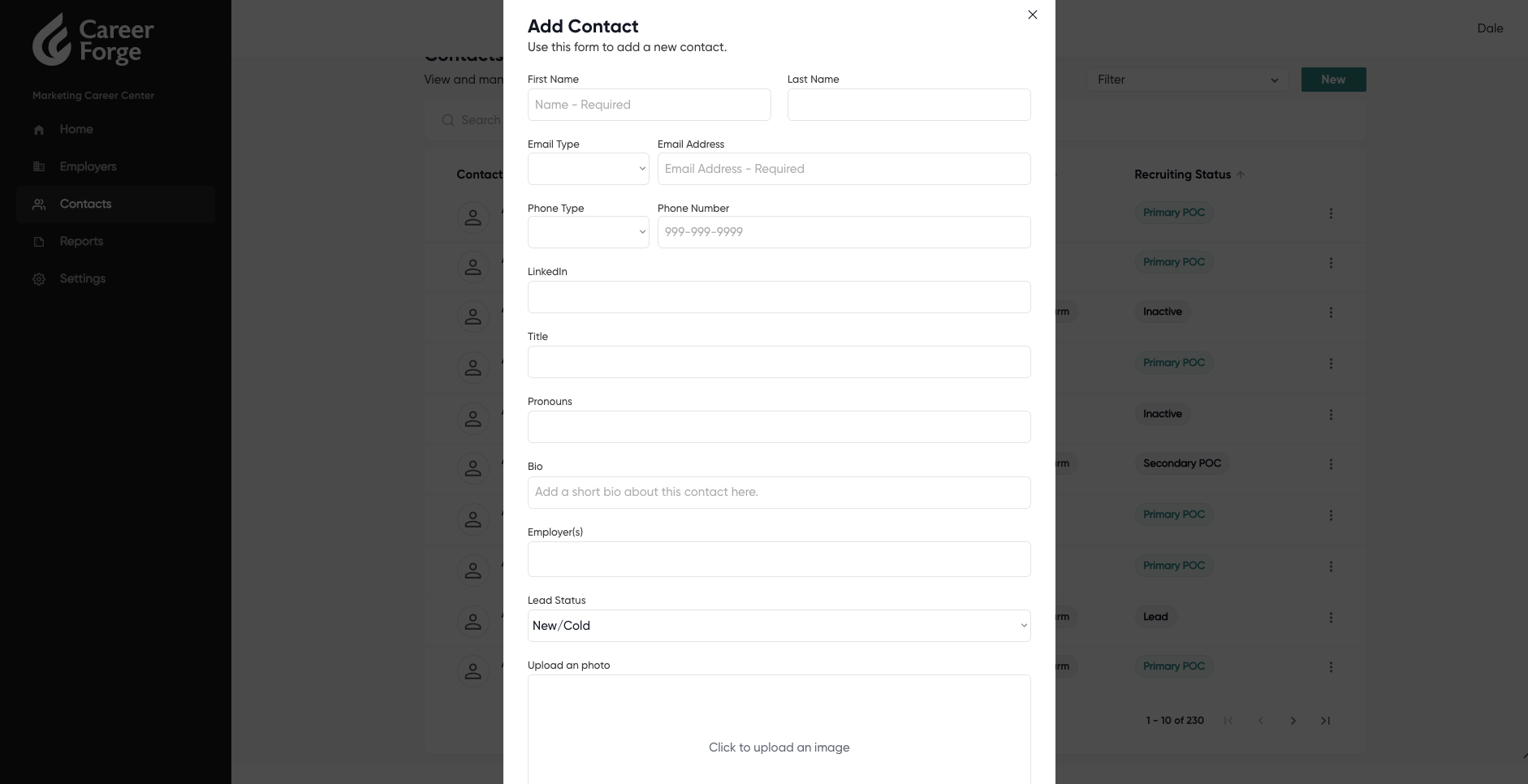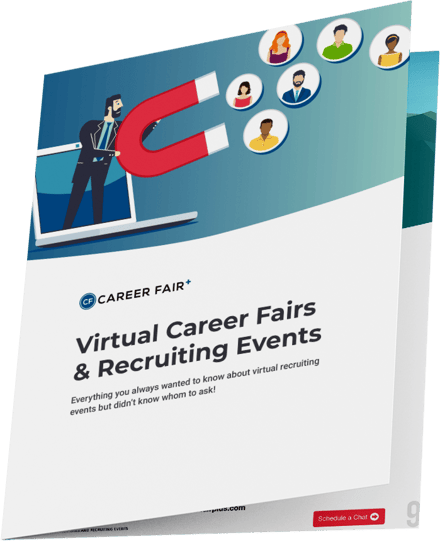TL:DR: In dating apps and on big job boards, algorithms produce roadmaps but not automatic connections. The core of recruiting is human and trust-driven. Career services bridge existing gaps by nurturing genuine relationships.
Imagine you're a college senior or recent graduate in the early talent job market. You’re not asking for much career-wise: an engaging job with good pay, a positive work culture, growth opportunities, and maybe a short commute. If you’re like most people in this situation, you’re entering keywords and enabling filters on job search sites like Handshake, Indeed, or LinkedIn.
Equal parts nervous and optimistic, it dawns on you: using these technology platforms to find a job feels a lot like using a dating app to find romance. In both instances, you're looking for a personal, tangible connection, a relationship suited especially for you and your goals. So why is finding a match so difficult? Isn't software supposed to simplify our lives?
Well, the problem is generic matching. Job boards typically group employment opportunities into broad categories like 'Marketing' or 'Engineering,' much like dating apps group people by age or location. The deeper, essential details don’t figure in the equation at this early stage.

Job board math doesn’t work when you’re looking for work
You uploaded your resume, finished the "tell us about yourself" questions, and WOW, two weeks later, you’re interviewing for one of the highest percent matches. Except it’s a terrible match that only aligns with two of your interests. Why? Because of math.
An algorithm is a mathematical set of instructions designed to perform a specific task. Software engineers craft these rules to sift through massive amounts of data, supposedly simplifying your life.
On a job board, the algorithms are your digital matchmakers. You put in your qualifications, experience, and skills, expecting these coded Cupids to send the right opportunities. Except they can't because numbers don't recognize the nuances that turn a calculated match into a desirable real-life career opportunity.
Job board algorithms primarily focus on keyword matching. If your resume includes the term 'project management,' you'll get project management roles. But what if you hate long meetings and prefer hands-on work? The algorithm doesn't care. It's like being matched with someone who loves rock climbing when you're afraid of heights. It's a setup for failure.
The algorithm's design overlooks the subtleties that differentiate you from other candidates. Maybe you excel at teamwork but dread group evaluations. Perhaps you crave creative freedom because you loathe micro-management. These complexities that make you unique get lost in binary logic and data sets. A soulless equation doesn't cut it when searching for something as personal as the perfect job.
Job hunting succeeds on connections rather than data points. Career services build the confidence and trust for students to seek–and employers to request–these meetings. |

The Power of Personal Referrals
We've all heard so many stories about friends fixing up friends whose first dates turn into happily ever afters. Sure, every introduction doesn't become lifetime bliss. Still, people who understand the nuances of your personality and preferences are much more likely to make a strong match than an algorithm from a software engineer who's never met you.
Job board math is particularly frustrating for recent college graduates and early career job seekers because it takes time to
- Acquire the differentiating skills and experiences that get you (i.e., your resume) noticed in a sea of algorithms.
- Establish the types of professional relationships hiring managers trust.
A direct referral could be the reason you get an interview or, better yet, land the job. Friends or co-workers can tell employers the unique characteristics and competencies you bring to the table, like a knack for spontaneous problem-solving or how you inspire team performance by lightening the mood ahead of looming deadlines.
Computer algorithms, and thus job boards, can't replicate what personal and professional relationships contribute to your job search.
Job boards fail employers, too.
Hiring managers and HR teams pour time, effort, and cash into posting jobs, sifting through resumes, and interviewing candidates, most found on job boards. And if these candidates aren't a match, the company's back to square one, managing turnover, retraining, and dealing with an exploding recruiting bill.
There's another reason job board math doesn't cut it as a sole source for candidate searches: the algorithms can't identify a student's mastery of in-demand soft skills. According to Novoresume, the top ten skills employers want are:
- Time Management
- Communication
- Adaptability
- Problem-solving
- Teamwork
- Creativity
- Leadership
- Interpersonal Skills
- Work Ethic
- Attention to Detail
Hiring is more than filling a vacant seat; it's investing in human capital. No employer wants to realize six months later that their new hire who aced the technical tasks can't collaborate on a lunch order. A poor fit can drag down team morale, hinder productivity, and create a ripple effect that goes beyond that one bad hire.
Algorithms on big job boards reduce candidates and employers to keywords and filters. They do a poor job of measuring soft skills and work potential. Students and employers deserve an affordable pathway to establish trust throughout job searches and hiring.
Break up with job boards and connect with Career Forge
Please don't misunderstand me; software is a good thing. I'm a software engineer and co-founder of a SaaS software company. But what we do is only worth it if it facilitates what you do.
Algorithms can unintentionally create barriers. Or raise doubt in the candidate or employer’s mind. People, on the other hand, and especially career services, build trust across the early talent network.
Career services, students, and employers need technology solutions to manage human interactions instead of supporting transactional tasks.
Career Forge is the only network designed for career services to support event management, advising, experiential learning, first destination & outcomes, intuitive reporting, employer relationship management, and job board engagement.
When wrangling spreadsheets for employer relationship management is too tiring, and it's taking too long for big job board algorithms to find your perfect job/candidate match, try Career Forge.

